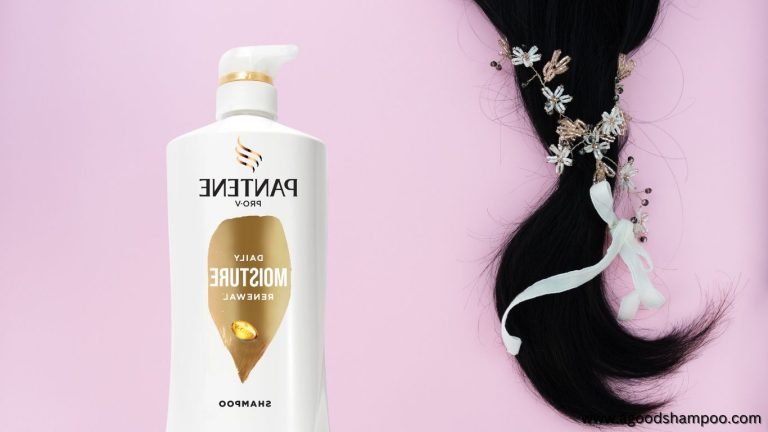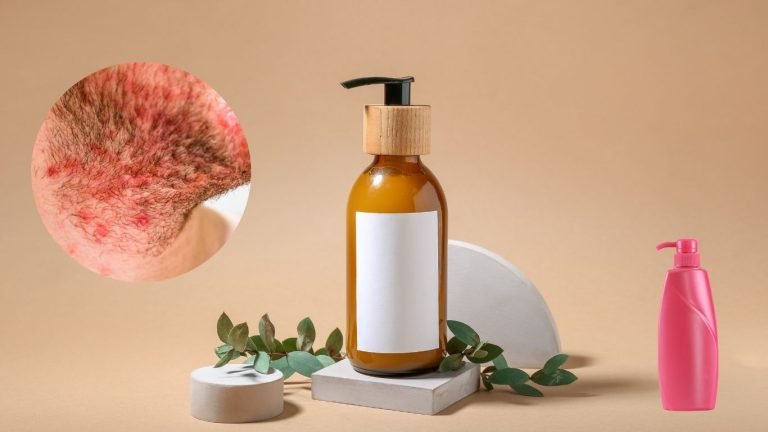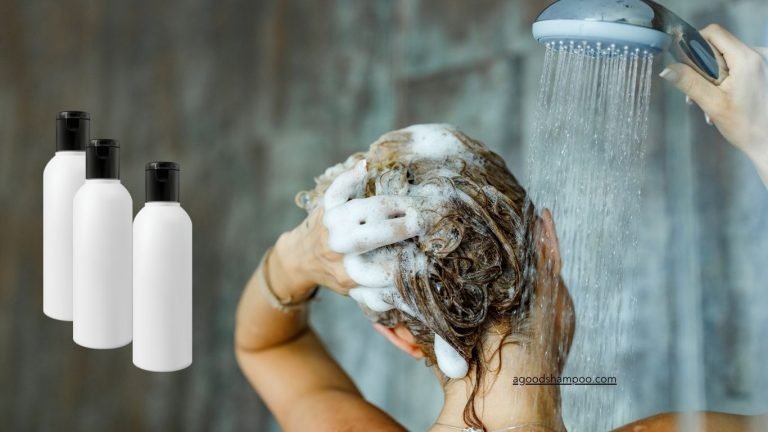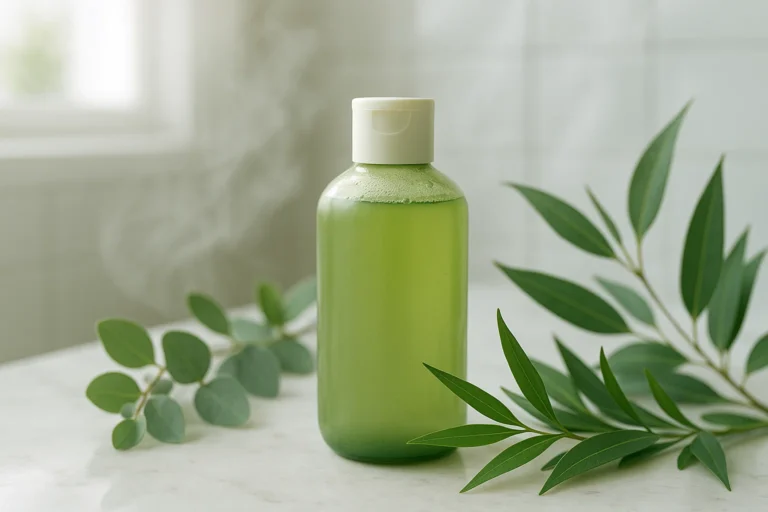What’s a Good Shampoo for Pitbull Puppies? (Vet-Approved Gentle Choices)
 If you’ve ever tried bathing a Pitbull puppy, you already know the mix of chaos and cuteness that follows. One second they’re wagging their little tails in the tub, and the next they’re shaking water all over the bathroom. But behind all that fun lies a real concern: what’s actually safe to wash a Pitbull puppy with? Their skin isn’t like ours it’s thinner, more sensitive, and still developing that natural protective oil layer.
If you’ve ever tried bathing a Pitbull puppy, you already know the mix of chaos and cuteness that follows. One second they’re wagging their little tails in the tub, and the next they’re shaking water all over the bathroom. But behind all that fun lies a real concern: what’s actually safe to wash a Pitbull puppy with? Their skin isn’t like ours it’s thinner, more sensitive, and still developing that natural protective oil layer.
So picking the right shampoo isn’t just about a nice smell or shiny coat it’s about keeping their skin barrier intact and itch-free. Let’s break down what vets recommend, which ingredients to look for (and avoid), plus a few home-made gentle cleansers you can safely whip up yourself.
Why Pitbull Puppies Need Special Care
Pitbulls might look strong and sturdy, but their skin tells another story especially when they’re young. Puppies have:
- Low oil production at first, meaning their coat dries faster.
- More reactive skin, easily irritated by perfumes, sulfates, or detergents.
- A short coat, so whatever touches their skin sinks in quickly good or bad.
Studies in veterinary dermatology show that short-haired breeds are 40% more prone to contact irritation compared to long-coated ones. That means products meant for “all breeds” often don’t cut it for Pitbulls, especially babies under 6 months.
So, the rule is simple: gentle, pH-balanced, and fragrance-free.
What Kind of Shampoo Is Good for Pitbull Puppies?
When choosing a shampoo, think “baby-grade for dogs.”
A good shampoo for Pitbull puppies should:
- Match their pH (6.5–7.5) – Dog skin is more alkaline than human skin, so human baby shampoo can still disrupt their balance.
- Contain mild surfactants like coconut-derived cleansers (cocamidopropyl betaine or decyl glucoside).
- Include moisturizing ingredients such as aloe vera, oatmeal, glycerin, or jojoba oil.
- Be free of parabens, sulfates (SLS/SLES), and artificial dyes or perfumes.
Look for labels that say “tear-free,” “soap-free,” or “hypoallergenic for puppies.”
Quick Fact
Did you know?
According to the American Kennel Club, over 70% of skin reactions in puppies come from using human or adult dog shampoos that strip their natural oils.
Vet-Approved Picks You Can Trust
Here are a few shampoos that consistently rank high with veterinarians and groomers for Pitbull pups:
1. Earthbath Oatmeal & Aloe Puppy Shampoo
If your puppy has dry or itchy spots, this one’s a classic. It uses colloidal oatmeal to calm irritation and aloe vera to rehydrate. It’s soap-free and has a mild vanilla-almond scent derived from natural oils.
2. Burt’s Bees Tearless Puppy Shampoo
Formulated with buttermilk and honey, it’s pH-balanced and fragrance-free. Burt’s Bees keeps it natural no sulfates or synthetic fragrances making it gentle enough for weekly baths.
3. Veterinary Formula Solutions Puppy Love
A dermatologist-tested favorite. The formula is mild enough for dogs as young as six weeks old and contains no harsh soaps, only gentle plant-based cleansers.
4. Wahl Gentle Puppy Shampoo
Uses cornflower and aloe. It’s free of PEG-80 and alcohol, both of which can sting or dry a puppy’s skin.
Ingredient Breakdown (The Good, The Bad, The Tricky)
| Ingredient Type | What It Does | Good or Avoid? | Notes |
|---|---|---|---|
| Oatmeal | Soothes and hydrates | ✅ | Natural anti-itch |
| Aloe Vera | Moisturizes skin | ✅ | Use pure, not colored gels |
| Glycerin | Holds water in the coat | ✅ | Safe for daily use |
| Tea Tree Oil | Fights bacteria | ⚠️ Only trace amounts | Too much can be toxic |
| Sulfates (SLS, SLES) | Creates foam | ❌ | Strips skin oils |
| Alcohol | Preservative, dries skin | ❌ | Avoid denatured alcohol |
| Essential Oils | Add scent | ⚠️ | Use dog-safe only (lavender OK, peppermint no) |
How Often Should You Bathe a Pitbull Puppy?
Here’s the sweet spot: once every 3–4 weeks.
More frequent baths can dry their skin unless they’ve rolled in mud or something smelly (which, let’s be honest, happens often).
Between baths, you can:
- Wipe them down with a damp microfiber towel.
- Use dry shampoo formulated for puppies.
- Brush weekly to distribute natural oils evenly.
Vets agree that over-bathing is the #1 reason puppies develop flakes, rashes, and itch cycles.
What Research Says
- A 2023 veterinary study published in Frontiers in Veterinary Science found that dogs bathed more than once every 2 weeks had 40% less lipid protection on their skin.
- Another report in the Journal of Small Animal Practice noted that pH disruption leads to higher yeast and bacterial infections in short-haired breeds.
So moderation really is key.
What Should I Wash My Pitbull With If I Don’t Have Dog Shampoo?
It happens your puppy rolled in dirt, and you’re out of shampoo.
Don’t panic. You can make a temporary gentle cleanser right in your kitchen.
Oatmeal Soothing Wash
- 1 cup ground oats
- ½ cup baking soda
- 1 quart warm water
Mix until smooth, pour over your puppy, and massage gently. Rinse well. Oatmeal relieves itching and baking soda balances pH.
Aloe Vera & Glycerin Rinse
Blend:
- 1 tablespoon pure aloe vera gel
- 1 teaspoon glycerin
- 2 cups lukewarm water
Use this between baths to refresh and moisturize their coat. Perfect for summer heat or after walks.

DIY Natural Puppy Shampoo Recipes
Homemade shampoos can be amazing if you keep them simple and fresh. Always store them in the fridge and use within a week.
1. Gentle Oat & Coconut Shampoo
What you’ll need
- ½ cup unscented castile soap (baby-mild)
- 1 cup oatmeal water (soak oats in warm water, strain)
- 1 teaspoon coconut oil
- 3 drops lavender oil (optional)
Shake before each use. Leaves a soft, subtle scent and helps itchy skin.
2. Apple Cider Vinegar Coat Clarifier
If your puppy smells “doggy” even after baths:
- Mix 1 part apple cider vinegar with 3 parts water.
- Pour over coat after shampoo, let sit for 30 seconds, and rinse.
It naturally kills bacteria and restores shine.
3. Chamomile & Honey Rinse
For calming inflamed skin:
- Brew a strong chamomile tea, let cool.
- Add 1 tablespoon honey and 2 cups warm water.
- Use as a leave-in rinse.
Chamomile’s natural antiseptic power is backed by studies showing it reduces dermatitis in animals.
The Right Bathing Technique Matters More Than You Think
Even the best shampoo won’t help if the bath itself causes stress or damage. Here’s how to make it gentle and fun:
- Use lukewarm water too hot strips oils; too cold shocks their system.
- Dilute the shampoo. Mix 1 part shampoo to 5 parts water for even coverage.
- Massage lightly instead of scrubbing. Their skin’s thin, so treat it like baby skin.
- Rinse thoroughly leftover suds cause irritation.
- Towel-dry gently and avoid blow dryers unless on the cool setting.
Finish with a cuddle or treat. Make bath time something they look forward to, not fear.
When to See a Vet
If your Pitbull puppy shows signs of:
- Constant scratching or licking
- Red or inflamed skin
- Scaly patches or bumps
- Hair loss around ears, belly, or tail
…it’s not a shampoo issue anymore it could be allergies, mange, or infection.
Vets often recommend medicated shampoos containing chlorhexidine or benzoyl peroxide for skin infections, but these are prescription-strength. Never use them without guidance.
Home Remedies That Actually Work (and Are Vet-Safe)
Some natural options genuinely soothe irritation without side effects:
- Colloidal oatmeal paste: mix oatmeal with water, apply for 10 minutes, rinse.
- Coconut oil massage: tiny amounts (1 tsp for small pups) massaged into dry areas help reduce flakiness.
- Aloe vera leaf gel: apply directly to hot spots; studies confirm its wound-healing ability.
- Diluted green tea rinse: cools inflamed skin after scratching.
Always test a small patch before applying anything new.
The No-Go List (Never Use These on Puppies)
- Human shampoo or baby shampoo – wrong pH, too harsh.
- Dish soap or detergent – destroys skin barrier.
- Essential oils like peppermint, clove, tea tree (undiluted) – toxic in small doses.
- Alcohol-based sprays or perfumes – instant dryness.
- Homemade concoctions with lemon or vinegar concentrate – can sting raw skin.
Your puppy’s skin may look tough, but it’s thinner than paper in spots. Always err on the side of mild.
What Do Vets Recommend for Puppy Shampoo?
When surveyed by PetMD and the American Veterinary Medical Association, over 85% of vets said they recommend:
- pH-balanced puppy shampoos (commercial or vet-formulated)
- Oatmeal- or aloe-based formulas for dry or itchy skin
- “No-rinse” waterless foams for frequent cleanups
And yes most vets still prefer store-bought veterinary brands over home remedies for long-term use. DIY is fine in between but not as your main cleanser.
Bathing Frequency by Puppy Age
| Puppy Age | Recommended Frequency | Notes |
|---|---|---|
| 6–8 weeks | Once every 3–4 weeks | Use tear-free puppy shampoo only |
| 2–4 months | Every 3 weeks | Can introduce mild aloe or oatmeal products |
| 4–6 months | Every 2–3 weeks | Begin brushing to distribute oils |
| 6 months + | Every 2–4 weeks | Adjust based on activity & smell |
If your pup plays outdoors or swims, rinse with plain water mid-week instead of adding more shampoo cycles.
My Personal Tip
After years of testing products and helping dog owners with sensitive breeds, I’ve learned this: simplicity always wins. You don’t need five fancy products or a chemical cocktail. A single bottle of gentle, fragrance-free oatmeal shampoo plus one natural rinse (like aloe vera or chamomile) keeps your puppy’s coat balanced, shiny, and healthy.
Signs You’re Using the Wrong Shampoo
- The coat feels squeaky after rinsing (too harsh).
- White flakes appear a day later (dryness).
- Puppy scratches more than usual (irritation).
- Red patches show under the belly or near armpits (contact allergy).
Switch immediately to a hypoallergenic option if any of these happen.
Let’s Talk Smell Because That Puppy Odor Is Real
Pitbull coats naturally trap body oils and sweat between their short hairs. Instead of masking it with strong perfume shampoos, target the cause:
- Add a spoon of baking soda to your DIY wash.
- Use a vinegar rinse occasionally to balance odor-causing bacteria.
- Dry completely after baths damp fur smells stronger.
Natural doesn’t mean boring; it means balanced. You want your pup to smell like clean fur, not air freshener.
Coat-Care Between Baths
Keep your puppy’s coat fresh with these mini habits:
- Daily brushing: a soft rubber brush spreads oils and removes loose dander.
- Wipes: choose alcohol-free, fragrance-free puppy wipes.
- Nutrition: omega-3 supplements (fish oil) improve coat softness within weeks.
- Hydration: dehydration shows first in dull coats fresh water always.
Over 60% of coat dullness in dogs is diet-related, not shampoo-related. Feed well, bathe right, and your puppy glows.
Eco-Friendly Puppy Care
If you’re like me and care about sustainability, go for biodegradable formulas. Brands like Earthbath and 4-Legger use coconut-based cleansers that won’t harm waterways. Avoid plastic-heavy packaging; refill pouches are available now for many pet brands.
Even small choices like rinsing with a bowl instead of running water save gallons every month.
Common Questions Answered
Can I use baby shampoo in an emergency?
Once or twice is okay in a pinch, but not regularly. Baby shampoos have a pH closer to 5.5 still too acidic for dog skin.
How long should I wait after vaccinations to bathe?
Wait at least 48 hours so the immune system isn’t stressed.
Can I blow-dry my puppy?
Yes, but only on the lowest heat and hold the dryer far away. Air drying is safest for tiny pups.
What Research Confirms About Puppy Skin Health
According to NCBI’s Veterinary Dermatology Journal, puppies’ stratum corneum (outer skin layer) remains immature until about 14 weeks old. During that time, detergents even mild ones can alter lipid formation and lead to chronic dryness later. That’s why vets push for mild, infrequent bathing in those early months.
Final Thoughts
Caring for your Pitbull puppy’s coat isn’t complicated it’s about being kind to their skin. Choose products with simple ingredients, bathe only when needed, and keep home remedies light and fresh.
A good puppy shampoo should clean without stripping, soothe without medicating, and leave them soft enough that you can’t resist cuddling them again right after the bath.
And honestly, that’s the whole goal.

Carolina Herrera: Cosmetics specialist & Hair Analyst. Specializing in hair treatments, Carolina provides thorough reviews and advice on choosing the best products for damaged or treated hair.






